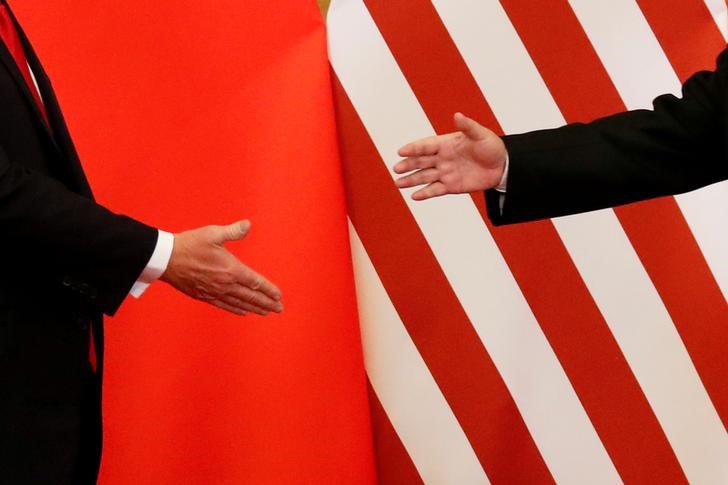(Bloomberg) -- Despite the U.S. and China being unable to even schedule trade talks for the moment, now’s a good time to start thinking about betting on a trade deal, according to veteran market strategist David Woo.
“I’m still reasonably optimistic,” Woo, head of global rates and foreign exchange at Bank of America (NYSE:BAC), said in an interview with Bloomberg Television. His central scenario is that U.S. President Donald Trump will seek an agreement with China to avoid an economic downturn in the run-up to the November 2020 election.
In currencies, that means buying the Australian dollar and South Korean won, which have been hit by the trade war, and selling the yen, Woo said. He also advised positioning for higher yields in the U.S. Treasury market, which has increasingly been pricing in a recession.
“The irony is the more people think a recession is coming, OK guess what, the more likely it is that Trump is going to want to do a deal with China” to lift his reelection chances, Woo said.
Woo, who’s analyzed markets for about two decades and previously worked at the International Monetary Fund, drew confidence from history. Only one time in the past half century did a president suffer a recession in the final year of his first term -- highlighting how leaders will do all they can to prevent a downturn.
That one exception was Jimmy Carter, who lost his reelection bid thanks in part to the recession that hit in 1980. That downturn was out of his control, due to a crisis in Iran that sent oil prices soaring, Woo argued.
“I’m going to assume the same logic applies to Trump” with regard to going out of his way to avert a recession, Woo said. That means there’s an “overwhelming incentive” for a China trade deal, he said.
With the Aussie at a “very depressed level,” it’s set to become one of the best performers once an agreement emerges, Woo said.
In bonds, he advised out-of-the-money puts on Treasuries -- contracts that are priced cheaper than where U.S. bonds currently trade. Those look “very attractive,” he said.
Ten-year Treasury yields could go back to 2% “or even higher” on a trade deal, he said. The dollar will also turn weaker once there’s a pact, he said.
